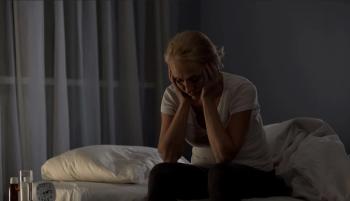
Benadryl Equals Placebo in Helping Infants Sleep
BALTIMORE -- Despite anecdotal evidence, a dose of the antihistamine Benadryl (diphenhydramine) at bedtime won't help infants sleep, reported investigators here.
BALTIMORE, July 10 -- Despite anecdotal evidence, a dose of the antihistamine Benadryl (diphenhydramine) at bedtime won't help infants sleep.
A trial testing the antihistamine in infants ages six months to 15 months was stopped early by a data safety monitoring committee because Benadryl was no more effective than placebo in helping the children to remain asleep during the night, according to Johns Hopkins researchers.
Many physicians and parents believe than antihistamines are an effective aid for children with sleep problems," Dan Merenstein, M.D., and colleagues, noted in the July issue of Archives of Pediatric and Adolescent Medicine.
"Unfortunately, this attitude is based on anecdote and studies of adult physiological interactions," rather than controlled clinical investigation in children, Dr. Merenstein and colleagues said. Dr. Merenstein is now at Georgetown University in Washington.
When the notion was tested in the so-called TIRED study -- a randomized, placebo-controlled trial with 44 infants and their parents -- Benadryl "was no more effective than placebo in reducing nighttime awakening or improving overall parental happiness with sleep for infants," the researchers reported.
Despite a lack of published studies in children younger than two, a 2003 study showed that of 671 primary care pediatricians in the U.S., 49% reported they had recommended in the previous six months using antihistamines for children age 0 to two years with sleep problems.
The TIRED study measured parental reports of improvement in the number of night awakenings that the parents needed to help the infant get back to sleep. The outcomes were assessed on days 15, 23, and 49 of the trial. Secondary outcomes were improved sleep during the two weeks before days 29 and 43, parental overall happiness with sleep, and improved sleep latency.
The study found:
- At day 15, three parents in the placebo group and one in the Benadryl group reported fewer night awakenings needing parental aid. The difference was not statistically significant.
- At days 23 and 49, five parents in the placebo group and none in the Benadryl group reported fewer night awakenings.
- There were no significant differences in any of the secondary outcomes.
Interestingly, there was a trend for children in the Benadryl group to fall asleep more quickly than those in the placebo group, which might account for the belief that the medication improves sleep, the researchers said.
The study was stopped after the data safety monitoring committee monitoring committee said it would be difficult, if not impossible, to have a positive outcome: In order to reject the null hypothesis, the committee noted, another 16 participants would have been needed in each arm, with 15 of the 16 new participants in the Benadryl arm reporting an improvement, and none of those in the placebo arm.
The researchers used a dose of 1 mg/kg of body weight, which is at the low end of the range of recommended doses. Such a dose is commonly used, however, and in the absence of previous studies, the researchers erred on the side of safety, Dr. Merenstein and colleagues said.
At a higher dose, the drug may have a more sedating effect, they added.
Newsletter
Enhance your clinical practice with the Patient Care newsletter, offering the latest evidence-based guidelines, diagnostic insights, and treatment strategies for primary care physicians.
































































































































